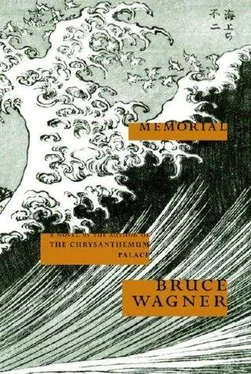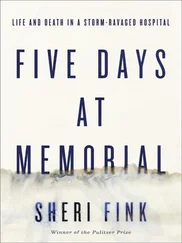She wished those 2 had died in the Maldives because that thousand-mile-long sea-level spine of atoll lent itself more readily to earthen monument making. How awful she had become! A leech in the architectural house of God: slutty 2nd-rate talent who’d ceased to know herself even through multiple readings of her Vedic astrological chart; it comically, macabrely ordained that she caretake others, her rising sign in codependence, moon in the House of Enabling — she especially knew how to make men feel good, as she roiled and withered, washing away from the inside, her cervix a village brittle with seabranches, vertiginous sea-horses, tumbling mothers, and drowned wide-eyed children gone saltwater ass-over-heels. She was that woman in the Andaman Islands, paid 2 rupees—4¢—by the local government in compensation for the tidal wave death of her babies, there she was, there was Joan, Joan of ARK, Joan of the disastrous, diaphanous moon-pulled tide, parasite of Melville’s “Maldive Shark,” riding the predaceous Wave:
…sleek little pilot-fish, azure and slim
— that was she—
How alert in attendance be.
From his saw-pit mouth, from his charnel of maw
They have nothing of harm to dread,
But liquidly glide on his ghastly flank
Or before his Gorgonian head;
Or lurk in the port of serrated teeth
In white triple tiers of glittering gates,
And there find a haven when peril’s abroad,
An asylum in jaws of the Fates!
They are friends; and friendly they guide him to prey,
Yet never partake of the treat—
Eyes and brains to the dotard lethargic and dull,
Pale ravener of horrible meat.
She picked up the phone to call her mother.
EVEN Ray couldn’t dismiss the propitious omen of the City of Industry’s offer arriving at the very moment Ghulpa announced her pregnancy. (She said she was certain of her condition when she could no longer smell the monsoon.) The Rite Aid kit had confirmed it.
They both cried.
He was waylaid and astonished.
He saw himself at the end of his life now, all wrongs, failures, and misgivings mitigated by this bloodied crumpled thing soon to join them in the world. He could see the pink coverlet of its flesh, almost smell it as once he had smelled his lost children; felt wornout fingertips caressing bakery-fresh dermis, inhaling the luminous, wispy penumbra of hairs on its head — old man to new old man — and saw his BG come alive again. God, he loved her. A good and worthy woman who’d been premonitorily dreaming of monsoons, saturated in their majestic, superabundant, terrifying memory.
For the last week, as he watched his Twilight Zone s, she talked from the kitchen, half to him, half to herself, of the storms’ flat-headed mushroom clouds and bridesmaids of crows, dust, and dragonflies, muttering stories of Durga and the man-eating tigers that her parents had passed on. For the last week, Ghulpa had been all about water, Kwality ice cream (or mango with cardamom), flooded lullabies, and bedtime tales. She rinsed her hair in coconut oil and stitched a tiara of jasmine for her “Raj”—she laughed and cried like a spinning weathervane and nearly brought Bapu to exasperation. She spooned down chikko and spoke of immersion as an impish girl in the Hooghly River. For the last week, newlywed to her fetus, all washed back to Mother India, her water broke from blackholed skies, all was sweetmeats and sandesh, all was Durga Puja, statues of the goddess straddling fearsome papier-mâché lions loaded onto slow-moving trucks with Little Gulp jumping on, hooded by a green centipede of banana leaf, on the way to the ghat for submergence. Now Ray peaceably drowned as well in those fluid recollections and Taj Mahal — themed pandals, Durga and Ganesha in carriage, illuminated by fierce neon, he sunk like a treasure in her tears, sunk in his private old man sobbings, the couple’s lachrymose communion incubating beneath the sacred folds of her almond-skinned belly. Raymond Rausch experienced a teleological rapture of the days, and a feeling most merciful that there had been a purpose to his smallest and even largest abdications, and that he had been forgiven.
WHEN he got lonesome for Nip, he watched that wonderful fellow on National Geographic’s Dog Whisperer, a gentle warrior who healed the worst of the worst, even a pit bull named Half-Dead with scars around its neck — the owner, a homeless pimp, kept it tied for weeks to a pole, with barbed wire. At the end of the show the Whisperer told the animal’s stunned and grateful suburban parents, “The beauty is, they move on. Your dog is no longer living in the past, he’s living in the present. That’s why years of trauma can be reversed in an instant.”
THE amount the city offered for the wrongful break-in was $308,000. A funny number, so precise, but Ray didn’t want to ask how they’d come by it. The fewer the details, the better — he didn’t want to be the jinx. Now that there was a figure, he felt less combative, and friendlier to the concept. The lawyer on the phone quickly said they could do “far better” but Ray thought it just fine, even though Ghulpa frantically motioned that they needed to discuss it amongst themselves. BG was frantic about everything these days and who could blame her. Ray nodded at her, hanging up congenially.
“Bapu,” she said almost gravely. “Think of the little one who is coming.”
She wanted to give the little one everything. She wanted the little one to have the finest clothes and a rockinghorse bed. More than anything, Ghulpa demanded — in strict compliance with Bengali tradition — the finest in education for their child. The little one would become a scientist. He would go to Caltech. (He was never a she.) He would go to Harvard. He would go to Oxford. Ray assented, on a mellow, natural high. In the space of a few hours, in the winter of his years, he’d become a father and a wealthy man. He even allowed himself the thought:
I will be her husband. She will be my wife.
Detective Lake called to say he was in the neighborhood. BG prepared mint tea while the men visited. Of course, not a word was said re child or settlement, but it was obvious to their guest that Ray was in fine fettle. The mood of the house was buoyant.
When Ghulpa came in with the tray, the detective asked what part of India she was from. He said a merchant told him of a festival that honored whatever tools people worked with in their livelihood. Writers had computers and pencils blessed; musicians, their instruments. On this particular holiday, the merchant said that priests even anointed the weapons and ammunition of local police. He asked if it was all true and she smiled, bobbling her head like a sleepy cobra before a snake charmer. Yes, she said, the festival of lights, the festival of Diwali, in this Puja all “ammo” is blessed, the bands play, and the people chant Om Jai Jagdish Hare. Then she covered her mouth the way she did prior to a laughing jag. She went abruptly to another room and Ray just smiled because he knew she would soon begin to weep with the amniotic joy of housebound, baby-fevered mythos.
Their own private festival of light.
THE pain was really getting to him.
He didn’t have medical insurance and Remar reiterated his offer to find doctors willing to see Chess on a contingency basis. It was called being treated “on a lien,” or something like that. The lawyer compared his situation to having been in a crash — you could rent a car while your own was under repair without shelling anything out. Vendors and insurers usually had good-faith agreements re restitution that sometimes applied to doctors as well. It was important that Chess begin to create a papertrail of medical bills. “This isn’t a self-esteem issue,” said the lawyer. “You should find the help you need, pronto.” He would “procure” a list of clinics the firm had worked with. On the strength of the facts of the case, Remar felt reasonably confident Chester could get quality care for nothing or at least pennies on the dollar. He even offered a cash advance. “Don’t let your pride work against you. Again, that’s not the issue here.”
Читать дальше












